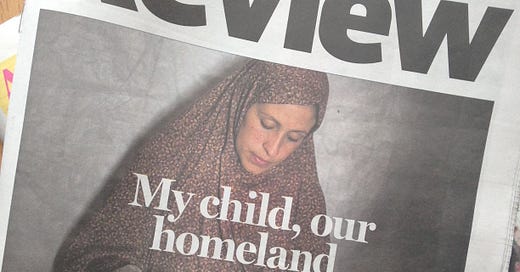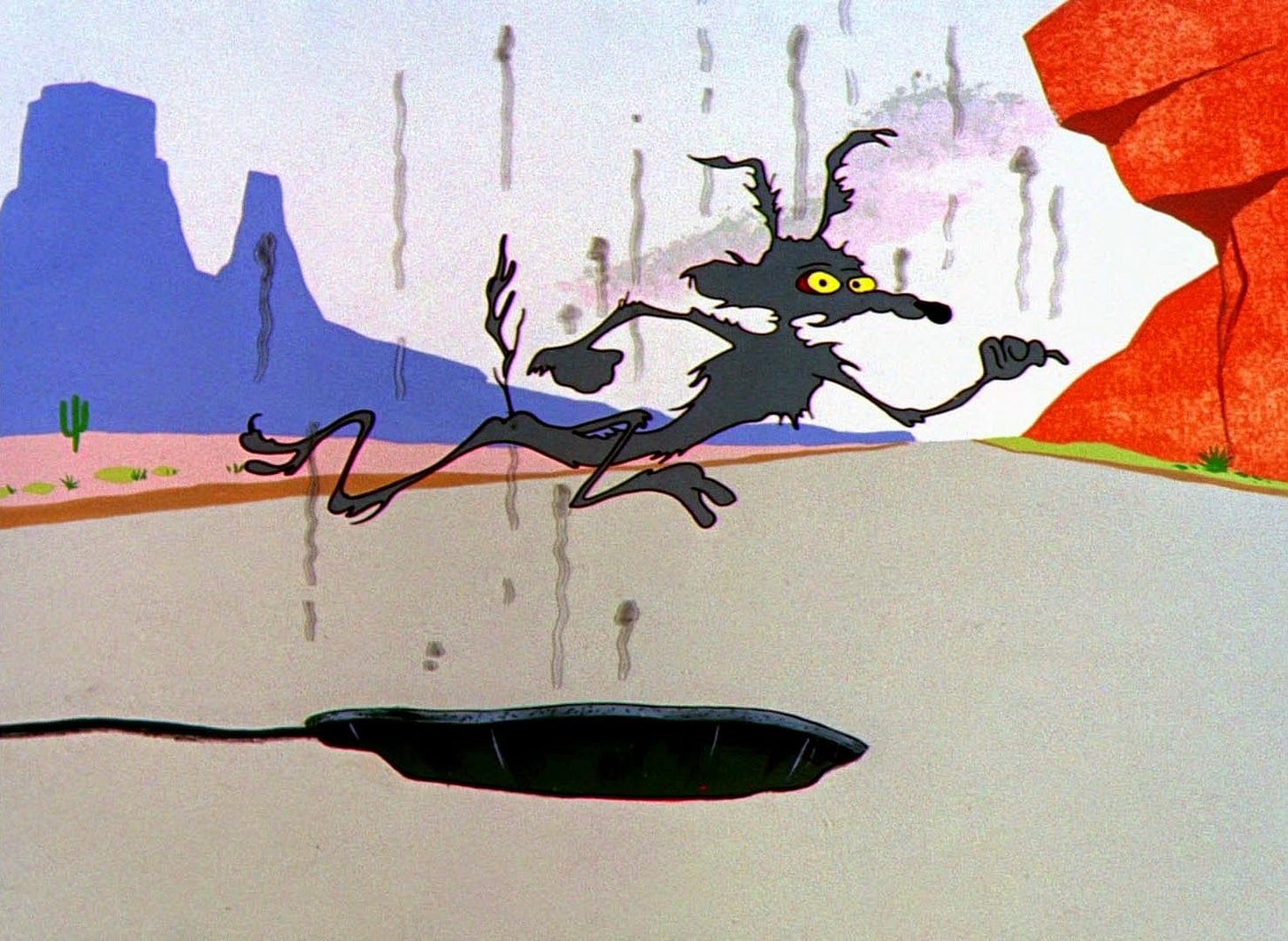Content warning: This essay is about mental health and the unfolding situation in the Middle East. It includes some graphic details. If you don’t have the capacity for that today, that’s OK. Please take care of yourself.
I’ve been meaning to write about Gaza. I was there in June 2015, as part of my job with UNICEF. I had built a fledgling partnership with what was then INM (Independent News & Media1) and after successful trips to Jordan and Lebanon where we raised money for children impacted by the conflict in Syria, I was looking for something else. Gaza was an option. There aren’t many places in the world that could successfully fundraise for Palestinian children but Ireland is one of them.
I pitched the idea and once approved, set about organising a week long press visit. It was enormously logistically challenging. We needed permission from the Israelis, the Palestinian authority and Hamas to enter Gaza. Once inside, we visited a newborn baby, a medical centre, a desalination plant. We met with families impacted by the war and captured their stories in the hope that it would raise awareness and move people to donate. It was a successful trip if the metrics are press coverage or money raised. It was also, for me, a breaking point.
I’ve had only a handful of before/after moments in my life. Moments where the person I was before is profoundly different from the person I became afterward. Gaza was one of those moments. The death of my mother was another.
Gaza, the place and its people, will always be an important part of my story. Since that trip, I met and made a family with my partner. She has family and colleagues in Israel, some of whom have been recalled to the army. On our last trip to Rome, she pointed out the building her maternal grandparents were forced to flee in 1943. I learned about the holocaust in history books. Her family lived it. Her trauma is not theoretical or historical. It is deeply personal. During the holidays, there are people missing from around the dinner table because the Nazis tried to exterminate Jewish people from Europe a half century ago. I have always empathised with all people caught up in conflict, but it feels very different to have our family's history twisted through it. I have so much to learn from her.
Since the attack on October 7th, I’ve been trying to work on an essay about my experience in Gaza. I spent some time going back through my notes, pulling the relevant details: the itinerary, snippets of the press coverage, some photos from the trip. Those simple tasks unsettled me. Within a few hours, the spectre of Gaza and what I experienced there loomed over me like a dark cloud. I decided to put the materials away. Not forever, but for now. I’ve written about trauma enough to know when and how to approach it. I’ve learned that sometimes I don’t have the resources to manage what comes with it.
Gaza wasn’t the only thing that unsettled me. I’ve spent the last month doing an intensive training on supporting survivors of sexual violence. It’s been a fulfilling experience, but it hasn’t been easy. Last week, the raw exhaustion of sitting in a cold, uncomfortable room talking about sexual harm every weekend hit me. That, plus a sudden (though not close) bereavement and the bodily shock that comes with a sudden drop in temperatures. I burnt out. I exhausted my body’s reserves and wasn’t able to cope anymore.
This wasn’t my first burnout. I’ve been here before. I knew the way out. I knew something had broken deep inside me, and I needed to wait for it to heal. Like the time I split my knee open and it took an annoyingly long time to heal because the wound reopened everytime I bent my leg. The only solution was time.
I woke up last Monday feeling like a hollow, brittle shell. I made a massaman curry. I took a long walk. I read a book. I watched The Morning Show. By Wednesday morning, I felt well enough to go for a run and get back to my desk. I wrote a freelance piece I’m on assignment for, and tried not to stress about the to-do list which continued to expand while I was trying to recover. On Thursday morning, I wrote some more and went to therapy. By sunset, I felt like I’d be hung on someone’s washing line. I was depleted, foggy and sore. My partner’s cold had arrived in my upper respiratory tract and I spent the weekend on the couch nursing myself back to health.
As I always do with illness (physical or mental), I’ve been trying to retrace my steps. I want to understand where things went wrong, and how I could have prevented it. To a large extent, I don’t think this period of ill-health was preventable. But one thing I wish I’d done sooner was get off social media.
I’ve written about this before - so many times - and yet, here I am. Falling into a trap that I know exists and can’t keep myself away from. For me, it’s often about loneliness. I like to see what people are doing. Even if I’ve never met them, it brings me comfort to see people out living their lives. Or, rather, showing me the things they want me to see from their lives.
In the days after the Hamas attack on October 7th, my partner and I were swapping stories from the news reports we’d read - mine in The Irish Times, her’s in La Republica. She asked if I’d read about a young woman who’d been killed. I wasn’t sure. There were so many people killed.
“Was she naked?” I asked, remembering the distinctive tattoos that helped identify a young woman who had been at the music festival.
“No,” my partner responded. “She had two broken legs and was driven through the streets while they spat on her.”
The brutal details haunt me still.
I watched this man tell CNN that his eight-year-old daughter’s death was a blessing. What kind of a world is it where a father is grateful his child is dead, rather than taken hostage. I thought about the hostages a lot. I thought about Gaza, the people I met, the things I’d seen, the people I worked with.
I thought about one young boy who showed us a picture he’d drawn of the things that scared him: missiles falling from the sky, a vibrant puddle of blood, his home collapsing. Later that year, I brought some drawings I’d made to therapy. It was hard to convey how I felt through language but art allowed me to access my emotions.
On Instagram, I saw a clip of tiny babies wriggling and grimacing in a hospital intensive care unit. It reminded me of a story I heard while working with UNICEF. In another country, at another time, I heard about a doctor who stayed up all night sharing one oxygen mask between three infants. He sat with them moving the mask between their grasping mouths until the sun rose. Like many of my memories from that time, the identifying details are gone. I can’t remember where it was, or what happened to those children. All that remains is the central injustice, the primal loss of tiny babies who knew nothing of this world.
On social media, these stories exist alongside cat videos and make up tutorials. I saw footage from Gaza alongside a clandestinely filmed video of Paul Mescal reacting to the Ireland vs All Blacks rugby match. The context collapse of social media has always been difficult for me. How can despair about the Middle East and Ireland’s loss in rugby exist in the same realm? How can raw human suffering (& our reactions to it) be converted in #content, into a product that makes tech billionaires richer? The whole process makes me nauseous. It scrambles my brain and upends my equilibrium.
I know that and still kept scrolling. I logged into twitter the other day and saw a tweet describing how doctors in Gaza have been forced to do surgery without anesthesia. I saw that, screen grabbed it and logged out. Hopefully for a long time.2
Social media isn’t a good environment for me. I’m too introverted and attention-shy to enjoy it and have never been able to build much of a platform. I often experience a little fritz of panic when I post, and long for the day when I don’t have to do it anymore.3 I remember an old pal who lost his mind to twitter. He stopped being the person I knew and became, instead, a walking, talking, arguing version of the app on two legs.
Social media does what it’s designed to do. It produces anxiety and comparative behavior. It fuels misinformation. It can be triggering, even traumatising. For the most part, I’ve stopped looking. Some combination of trauma, vulnerability and personal history made it too harmful for me. This is the reality of managing a chronic mental health condition. I decided not to look. I choose self-preservation instead.
I know I might be criticised for burying my head in the sand. I don’t work in nonprofits anymore. I’m not tied to the news cycle, scrambling for opportunities to raise awareness about fundraising. I don’t have to monitor feral social media feeds. I am privileged because I can choose, while so many people can’t. Skipping social media doesn’t mean skipping the news. I watched this clip with breakfast last week and found it very enlightening. This was also a good read. I have a folder full of pieces I want to dive into including pieces from
and a bunch of Atlantic pieces that come highly recommended. (I’ll start with this one.)But let’s be honest. The social media spiral isn’t about being informed. It’s performative. It’s often painful. So many people are triggered and traumatised. Social media is the worst place to have conversations that require nuance, flexibility, a mutual reaching to understand and a willingness to be wrong.
I have little of value to add to the conversation on the Middle East. I’m not an expert. I believe we’d be better off if clueless people focused on listening instead of talking. But I do know something about trauma. Humans aren’t wired to contain this kind of suffering. It’s OK not to look.
Links:
I haven’t been reading much on this topic, but here are some resources I wanted to share.
This is a good primer on the historical context.
This was a bit cringe, but also maybe a little hopeful. Patrick Kielty’s father was killed during the troubles in Northern Ireland which adds a particular poignancy to his words.
I read this book a few years ago and think of it often. It’s not an uncontroversial story but if you’re looking for a primer, I think it’s a worthwhile place to start.
- has compiled a useful list of articles & podcasts about social media and misinformation if you’re interested in that. I don’t have the headspace for academic questions quite yet, but I still got a lot from her framing of the topic.
Now known as Mediahuis.
It won't be a long time. That piece I wrote about will be published soon and I'll "need" to tweet it.
I don't "have to" do it, though it sometimes feels like I do. A topic for another day!









Quitting social media was so hard, and I still feel an occasional twang of fomo. But since I was released from its grip, I was able to use the psychic/emotional energy it took up to care for myself and thus, others. Take care of yourself!
Thank you for sharing these experiences Clare, take care!